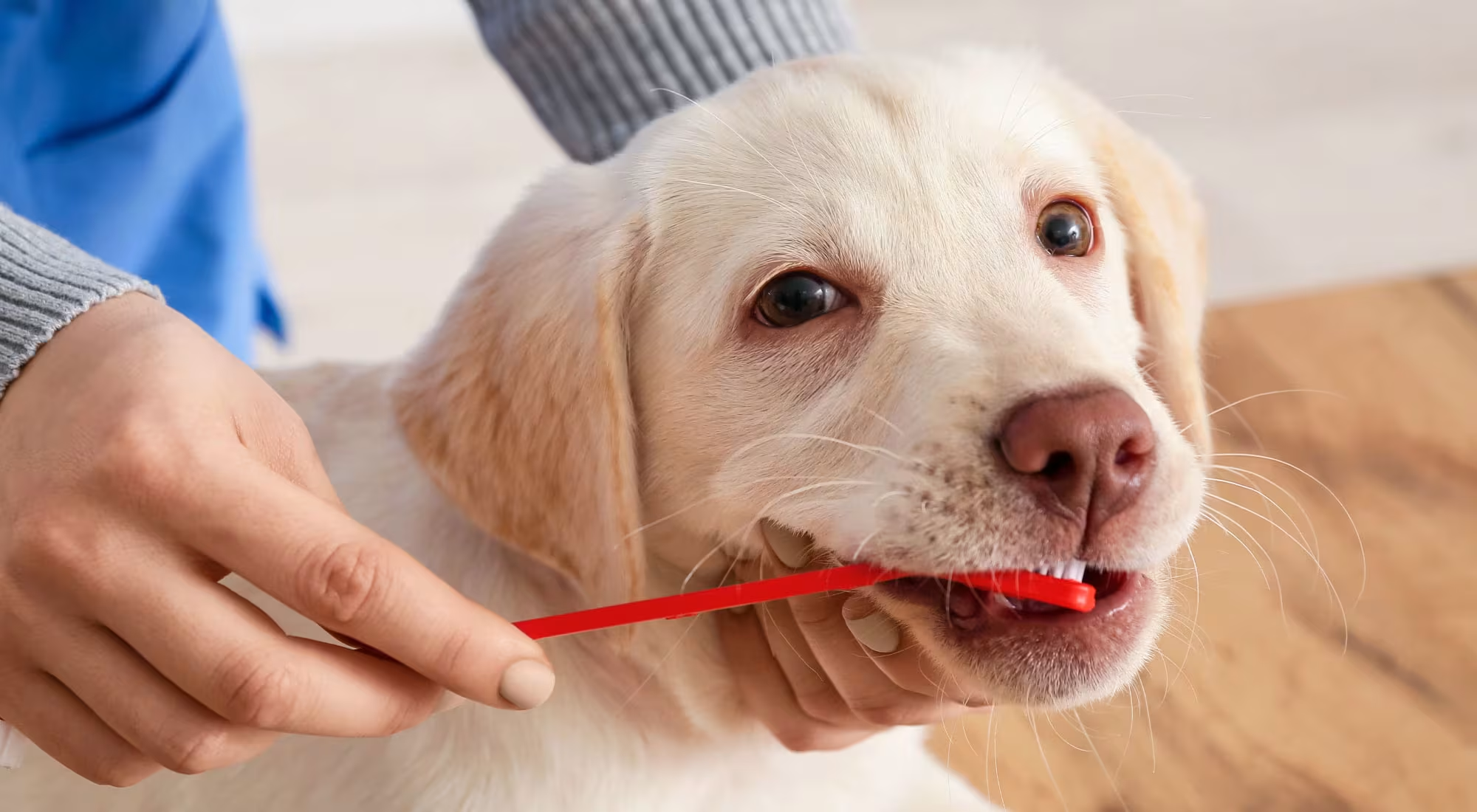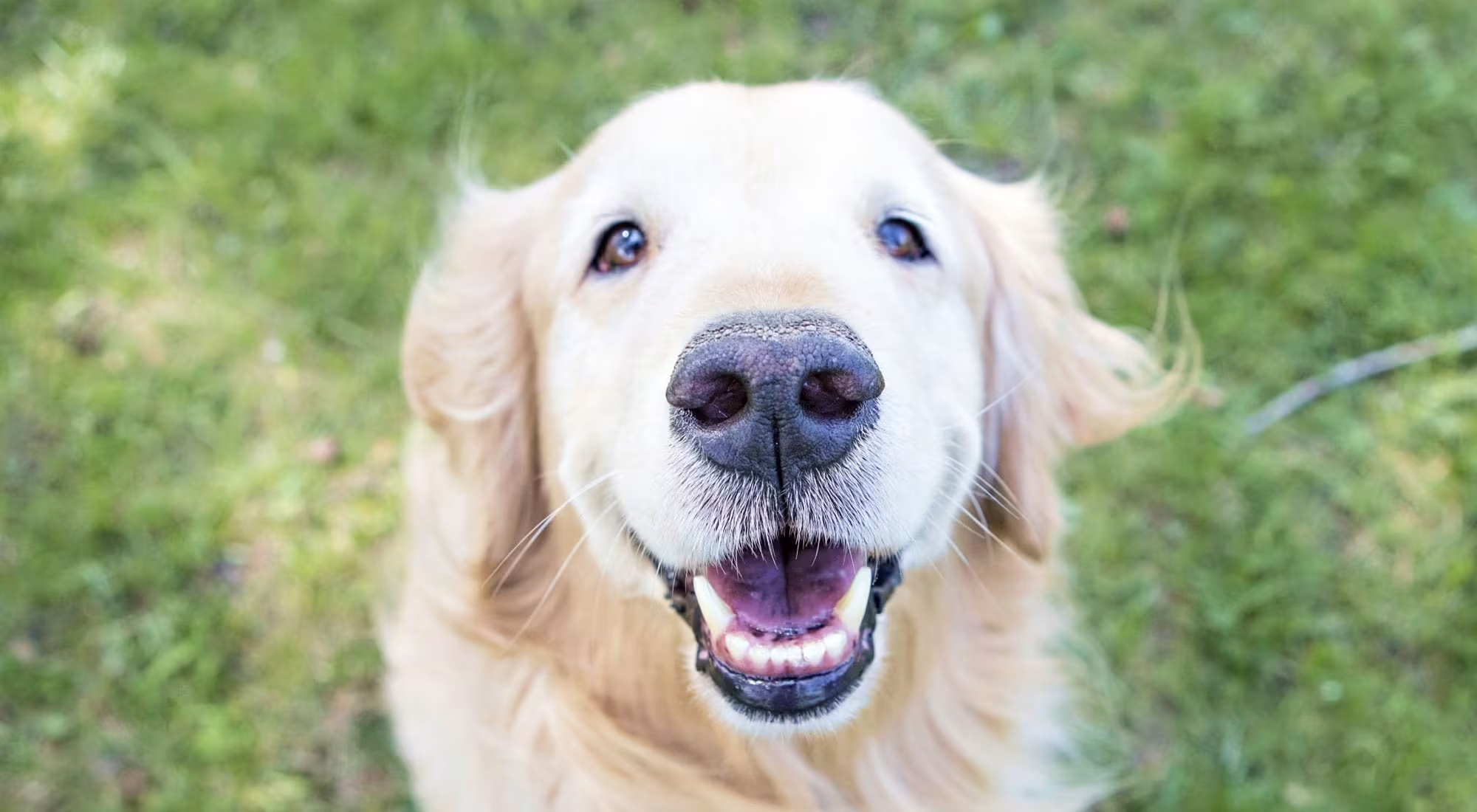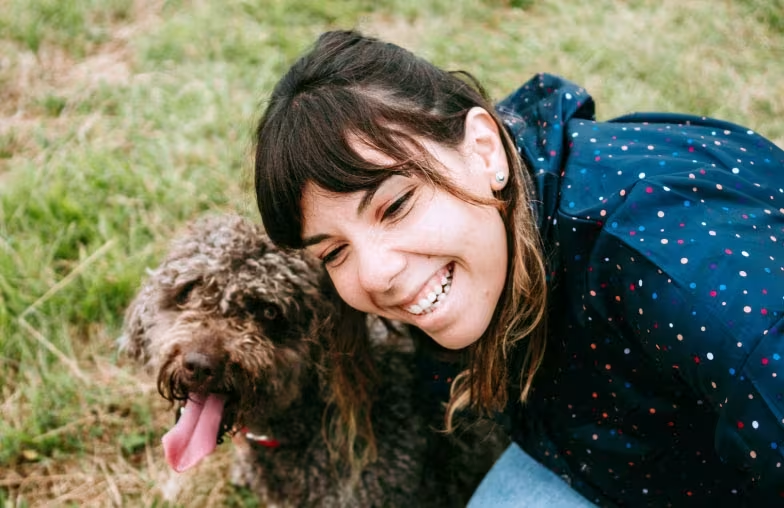Pearly whites aren't just for show.
And actually your dog's dental health is an indicator of their overall health and wellness. Keeping their teeth clean and free from plaque and tartar can prevent more serious health problems like gum disease and even damage to their internal organs.
“The first sign of gum disease in dogs is bad breath. Bad breath is not normal for dogs,” says veterinarian Dr. Jean Gauvin, dispelling one of the biggest myths about canine halitosis.
Your dog's breath might smell like dog food (which may not be your favourite scent) but it shouldn't smell bad.
Brushing basics
Keeping your pup's mouth in prime condition isn't difficult, and there are many oral hygiene options available for dogs who object to the standard brush-and-toothpaste combo.
In general, Dr. Gauvin says, canine teeth-cleaning comes down to a few key elements:
1. Start early and keep sessions short
As with most training, the earlier you teach your dog a new habit, the easier it'll be to maintain. Getting a puppy used to a toothbrush or dental wipe is, in general, easier than introducing brushing into an adult dog's routine. Whatever your dog's age, keep sessions short and playful.
Twice a day for 10 minutes is ideal, and be sure to maintain a relaxed and fun mood throughout. If you're stressed about brushing your dog's teeth, they'll be stressed too. When you're just getting started, start with a two-minute session where you brush the top teeth for a minute, and then the bottom for a minute. Building up to a full 10 minutes of brushing is more likely to work for your dog if brushing is not something they're used to yet.
2. It's all about flavour
Buying the right product is a pet parent's secret weapon against dental disease. If your dog likes the flavour of their toothpaste, they'll view teeth cleaning time as treat time.
Always use toothpaste or dental products designed for dogs. Not only do they come in appealing flavours, they don't contain harmful additives like xylitol.
3. Baby steps
Ease into a brushing routine by introducing your dog to one element at a time — give them a bit of toothpaste on your finger, then a bit on the toothbrush, before finally introducing them to the main event of actually brushing their teeth.
4. Celebrate their success
Positive reinforcement is key in learning any new habit or behaviour, so be sure to reward each cleaning session with a high-value treat and lots of love and praise.
Above all, patience is key.
“If your dog is afraid of the procedure and takes off every time he sees you get the toothpaste or toothbrush out, it's not going to work,” says Dr. Gauvin. “You won't like it, either. It shouldn't be a chore. It has to be fun for both the dog and you, otherwise you'll never do it.”
Not every dog will take to a toothbrush and paste, no matter how much you work at it. For small breeds, especially, it can be difficult to manoeuvre in their mini mouths. For them, try alternative products like dental wipes.
“Wipes contain ingredients that will prevent the formation of plaque and tartar. You just wrap them around your finger and put it to the teeth and gums,” Dr. Gauvin explains, advising pet parents to mimic the brushing movement with a finger.
Why does doggy dental care matter so much?
“If a dog doesn't receive any home dental care daily, then you can expect them to have poor dental health at the end of the year,” says Dr. Gauvin. But the effects of poor dental health reach beyond your dog's teeth.
Bacteria found in canine mouths contribute to plaque and tartar on their teeth. Some types of bacteria produce a sticky dome conducive to further bacteria growth. This is called biofilm, which can accelerate doggie dental issues.
This plaque biofilm needs to be removed from your dog's teeth every 12 to 36 hours. If it isn't, it will start to bind with minerals in the saliva and calcify into tartar. Tartar can work its way into the gum line and cause gingivitis and periodontal disease. This same bacteria can also enter a dog's bloodstream and have a negative or serious impact on their vital organs.
Regular teeth cleaning sessions help to prevent all of the above, contributing to your pet's overall wellness and happiness. Which, as pet parents know, is the “why” behind all the things we do for our furry BFFs.














































